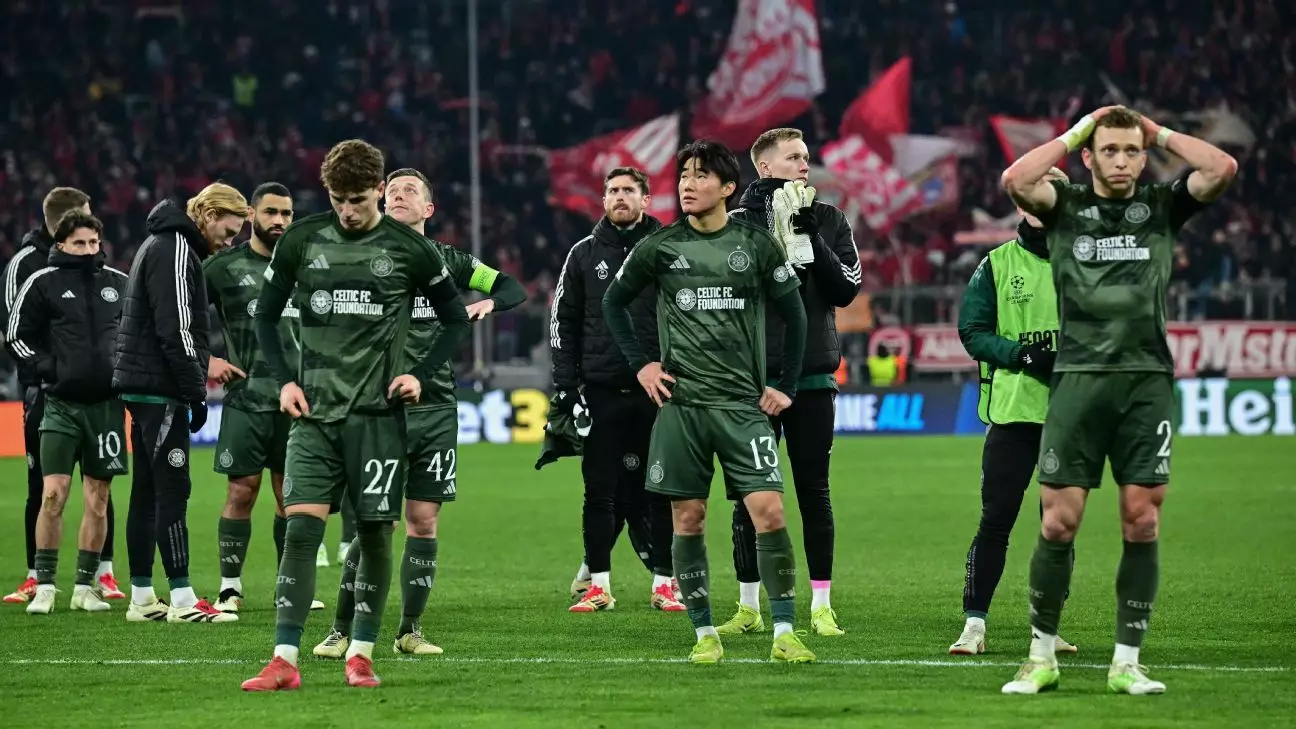In the aftermath of a heartbreaking defeat against Bayern Munich in the UEFA Champions League, Celtic manager Brendan Rodgers articulated a sentiment that resonates deeply in the world of sports: pride in one’s efforts, even in the face of failure. Despite the 1-1 draw that sealed Celtic’s exit from the tournament, Rodgers saw the bigger picture. He noted that the team’s performance, especially in the first half, showcased their potential and should be viewed as a foundation to build upon rather than just a missed opportunity. The juxtaposition of his pride against the disappointment of elimination highlights the dual nature of competitive sports, where moments of euphoria are often intertwined with heartache.
On what many viewed as a daunting challenge, Celtic’s Nicolas Kühn emerged as an unlikely hero by scoring an early goal that brought the aggregate scoreline to parity. His opportunistic strike capitalized on the Bavarian defense’s lapse, igniting hope among Celtic supporters. However, the narrative took a cruel twist in stoppage time when Alphonso Davies of Bayern snatched the victory, leaving Celtic’s dreams in tatters. This moment encapsulates the unforgiving nature of football, where moments of brilliance can quickly be overshadowed by misfortune. Such scenarios bring forth the harsh reality that in football, one second can shift the tide dramatically.
In Rodgers’ reflection on the match, he emphasized the lessons learned amidst the heartache. His acknowledgment of the team’s growth and development came across powerfully. Rodgers remarked on the European credibility that Celtic has been aiming to establish, a goal that extends beyond a single match. This sentiment suggests an understanding that the process of building a successful team is ongoing, and that setbacks, while disappointing, are often part of the journey. The experience gained from competing against a top-tier side like Bayern can serve as a valuable tool for future encounters in both domestic and international play.
Goalkeeper Kasper Schmeichel provided insight into the emotional dynamics of football. His assertion that the team would view this result differently as time passes speaks volumes about the psychological aspects of sports. The immediate aftermath is often clouded by raw emotion—disappointment, frustration, and a sense of loss—but with reflection, the perspective can shift toward recognizing the bravery and heart displayed on the pitch. Schmeichel’s desire for extra time underscores the intense affection players often feel for the game, even amidst the pain of a loss. The passion exhibited in such performances creates a bond among teammates that can strengthen their resolve moving forward.
While this Champions League campaign may not have concluded as Celtic had hoped, the club stands at a pivotal crossroads. The experiences garnered from high-stakes matches against esteemed opponents can act as catalysts for growth, ensuring that the lessons learned contribute to a more resilient and competitive squad in the future. The essence of Rodgers’ vision to transform Celtic into a formidable contender in European football hinges on such experiences. The pride he feels in his team’s capabilities must serve as motivation to continue striving for success, nurturing a mentality that embraces both the highs and lows of football.

